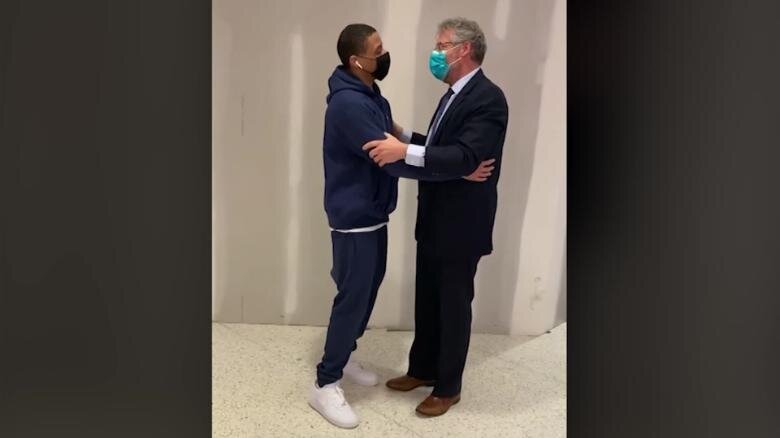In Episode 55, we brought you a conversation with Kevin Sharp: a former federal judge who gave it up because he had to sentence young men like Chris Young to cruel and unjust mandatory sentences. Several years later, we have an update: we talk with Kevin Sharp, and this time with Chris Young too.
Read MoreA happy ending to the story of Chris Young, as told by former federal judge Kevin Sharp back in episode #55.
Read MoreAs president, Joe Biden can fight for the criminal justice reforms the electorate is demanding... or he can double down on his decades-long advocacy for tougher policing, harsher sentencing, and stricter drug laws. With Inauguration Day on the horizon, we ask: what will Joe do?
Read MoreMandatory minimum sentences helped fill prisons in the U.S., and they played a substantial role in the mass incarceration we see now. What were these sentences supposed to do, and where did they go wrong? Most importantly, how do we get rid of them?
Read MoreBucking a decades-long trend of fewer death sentences imposed by states, the Trump administration wants to bring back capital punishment in federal cases. What does that mean? What happens next?
Read MoreWhy has the US prison population has grown for decades, surpassing two million? We’ve put more people in jail, but new research shows it’s not just how many people go to prison. What counts, for prison growth, is how long they stay.
Read MoreAmerican prosecutors have always been powerful figures in our justice system: they decide the charges, and offer the plea bargains. But our guest says they have become far too powerful – resulting in mass incarceration and the wrecking of human lives over trivial offenses.
Emily Bazelon, best-selling author and a staff writer at The New York Times Magazine, says it’s time for this to change. She’s the author of “Charged: The New Movement to Transform American Criminal Justice and End Mass Incarceration.”
Read MoreWe try to solve the problem of mass incarceration by eliminating mandatory sentences, or by getting rid of cash bail. But what about a better method of providing criminal defense services? Could this cut prison and jail populations, AND secure public safety? There’s a way to do this: use a holistic model for criminal defense services.
Read MoreWith the news of Supreme Court Justice Anthony Kennedy's retirement, we review some of the important decisions in which he played a key role, and consider how his departure may affect the Court's approach to criminal justice cases.
Read MoreA Republican gubernatorial candidate in Pennsylvania says school shooters should face automatic, mandatory execution. But the U.S. Supreme Court says only a judge can impose a death sentence.
Read MoreWhy has the US prison population grown for decades, surpassing two million? We’ve put more people in jail, but new research shows it’s not just how many people go to prison. What counts, for prison growth, is how long they stay.
Read MoreSince they began in the early 20th century, juvenile courts always treated kids differently – as people who were young enough to change. This began to change in the 1980s and 1990s when crime really spiked and we began putting some kids in adult courts and prisons – even giving life without parole and death penalties.Marsha Levick, deputy director and chief counsel for the Juvenile Law Center in Philadelphia, explains what changed.
Read More











